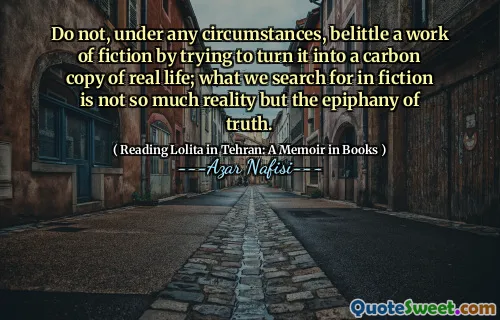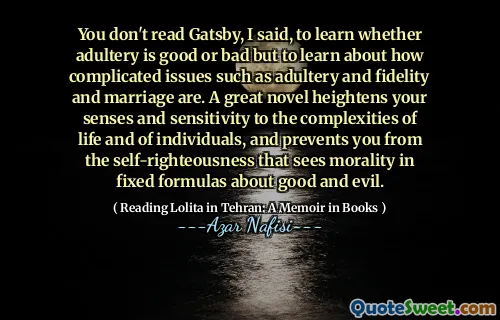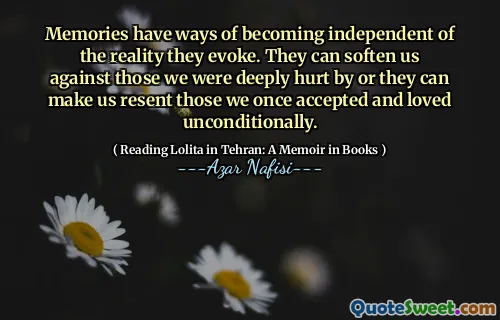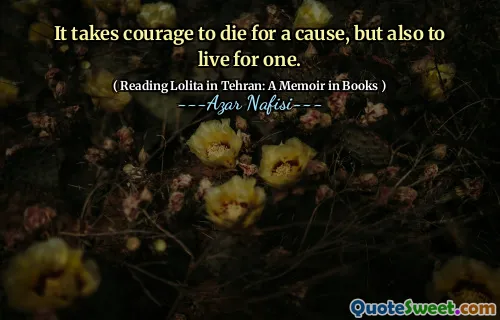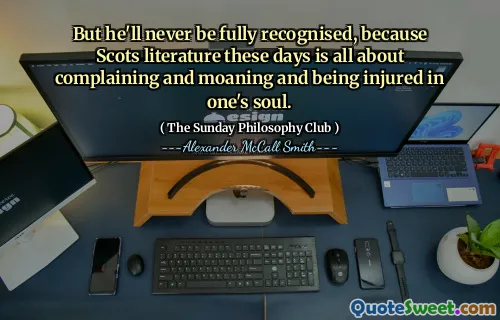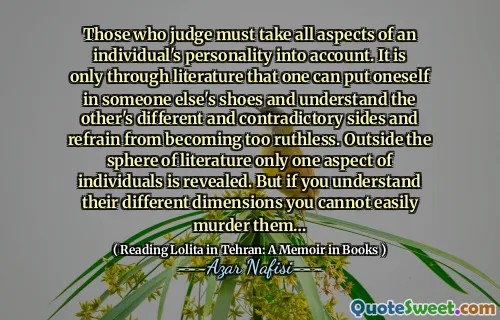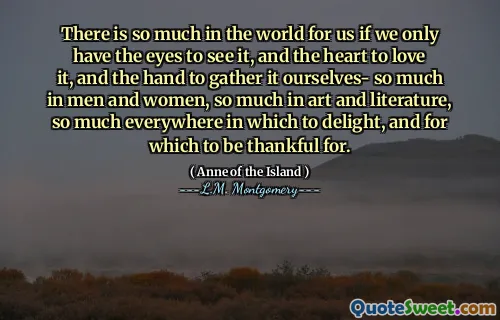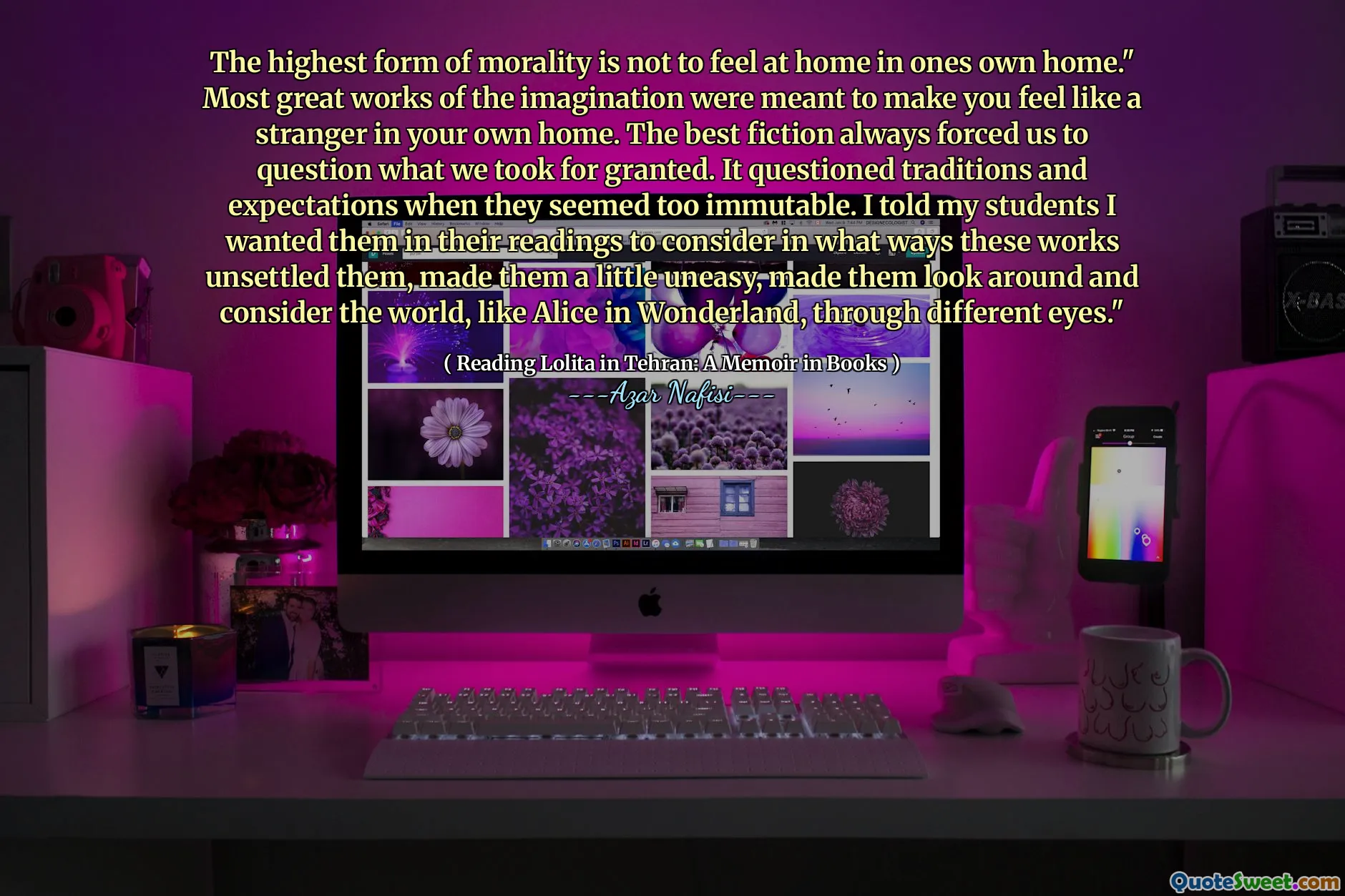
The highest form of morality is not to feel at home in ones own home." Most great works of the imagination were meant to make you feel like a stranger in your own home. The best fiction always forced us to question what we took for granted. It questioned traditions and expectations when they seemed too immutable. I told my students I wanted them in their readings to consider in what ways these works unsettled them, made them a little uneasy, made them look around and consider the world, like Alice v říši divů, přes různé oči. “
(The highest form of morality is not to feel at home in ones own home." Most great works of the imagination were meant to make you feel like a stranger in your own home. The best fiction always forced us to question what we took for granted. It questioned traditions and expectations when they seemed too immutable. I told my students I wanted them in their readings to consider in what ways these works unsettled them, made them a little uneasy, made them look around and consider the world, like Alice in Wonderland, through different eyes.")
📖 Azar Nafisi
V Azar Nafisi's „Reading Lolita v Teheránu“ diskutuje autor dopad literatury na naše chápání nás a světa kolem nás. Předpokládá, že největší beletrie v nás často vytvářejí pocit odcizení a zpochybňují naše zavedené přesvědčení a tradice. Toto nepohodlí vyzve čtenáře, aby přehodnotili to, co vždy přijali jako normální, a tlačí je k prozkoumání nových perspektiv. Nafisi povzbuzuje své studenty, aby přijali tento znepokojující pocit jako katalyzátor pro hlubší odraz.
Nafisi zdůrazňuje, že velká literatura nás zve, abychom vystoupili z našich komfortních zón. Cílem jako cizinec ve známém prostředí může čtenáři čelit rigiditě společenských norem a očekávání. Prostřednictvím této čočky slouží funguje jako „Alice in Wonderland“ jako mocné nástroje pro zkoumání naší vlastní reality. Nakonec, akt výslechu a přemýšlení o našem světě, inspirovaný literaturou, obohacuje naše morální a filozofické porozumění života.

